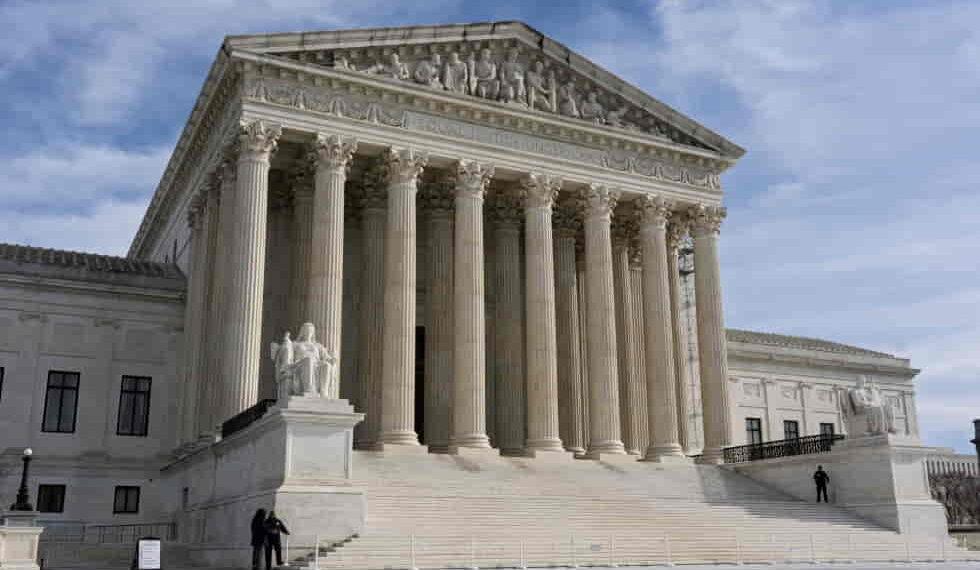Supreme Court Weighs Texas Law Aimed at Blocking Kids from Online Pornography, Raising Free-Speech Concerns
The U.S. Supreme Court expressed openness on Wednesday to a Texas law that seeks to block children and teenagers from accessing online pornography. However, the justices indicated they may send the case back to a lower court for further consideration of the law’s impact on adults’ free speech rights.
Texas is one of over a dozen states with laws designed to restrict young people’s access to online pornography. These laws stem from concerns about the ease with which children can access explicit material online, particularly through smartphones. The states argue these laws are essential in the face of the growing prevalence and availability of hardcore pornography on the internet.
Concerns Over Technology and Free Speech
Chief Justice John Roberts, part of the court’s conservative majority, acknowledged the rapid expansion of online pornography. “Technological access to pornography has exploded, right?” Roberts said during the hearing.
However, the Free Speech Coalition, a trade group representing the adult entertainment industry, argues that the Texas law unfairly impacts adults. The law requires individuals to submit personal identifying information to access adult content online, raising concerns over privacy, potential data breaches, and the risk of online tracking. Pornhub, a major adult website, has already ceased operations in several states due to difficulties in complying with such laws.
While the Free Speech Coalition agrees that children should be protected from explicit material, it contends that the Texas law is overly broad. The law’s vague language could also affect legitimate content, such as sexual education resources or depictions of simulated sex in movies. Additionally, the law primarily targets adult websites, leaving search engines—frequently used to find pornography—untouched. The group advocates for content filtering over age-verification requirements.
Content Filtering Challenges
Justice Amy Coney Barrett appeared skeptical of the law’s practicality, pointing out the numerous ways children can access the internet. As a mother of seven, Barrett said, “Content filtering for all those different devices, I can say from personal experience, is difficult to keep up with.”
Historical Precedent and Free-Speech Concerns
This is not the first time the Supreme Court has addressed the issue of online pornography. In 1996, the court struck down parts of a law banning explicit material accessible to children online. In 2004, the court upheld less restrictive measures, like content filtering, but rejected more extreme laws aimed at curbing children’s access to pornography.
Texas argues that technology has significantly improved since then. The state claims that online platforms can now use simple tools, like verifying a user’s age through a quick photo, much like checking ID at a store. Texas believes this new technology makes age verification no more invasive than traditional methods used for decades.
Legal and Constitutional Questions
The 5th Circuit Court of Appeals recently sided with Texas, ruling that the law could go into effect despite earlier challenges. However, some justices expressed concerns that the lower court had not applied a strict enough legal standard regarding the law’s impact on First Amendment rights.
Justice Ketanji Brown Jackson questioned how far the state could go in requiring adults to prove their age, asking, “How far can a state go in terms of burdening adults showing how old they are?”
Justice Elena Kagan raised concerns about potential unintended consequences for other laws involving free speech, regardless of how the court rules on this case.
A Potential Compromise
Some justices seemed interested in the position of the Biden administration, which has suggested sending the case back to the 5th Circuit for further deliberation. The administration proposed that, if carefully written, such laws could pass a higher legal standard. The goal of protecting children from pornography is widely supported, but it must be balanced against the constitutional rights of adults.
Other states with similar laws include Tennessee, Arkansas, Indiana, Kansas, Louisiana, Mississippi, Montana, Oklahoma, Utah, and Virginia.
The Texas law imposes fines of up to $10,000 per violation, with penalties increasing to as much as $250,000 if the violation involves a minor.
The Supreme Court is expected to issue a decision on the case by June.
This article was rewritten by JournosNews.com based on verified reporting from trusted sources. The content has been independently reviewed, fact-checked, and edited for accuracy, neutrality, tone, and global readability in accordance with Google News and AdSense standards.
All opinions, quotes, or statements from contributors, experts, or sourced organizations do not necessarily reflect the views of JournosNews.com. JournosNews.com maintains full editorial independence from any external funders, sponsors, or organizations.
Stay informed with JournosNews.com — your trusted source for verified global reporting and in-depth analysis. Follow us on Google News, BlueSky, and X for real-time updates.














